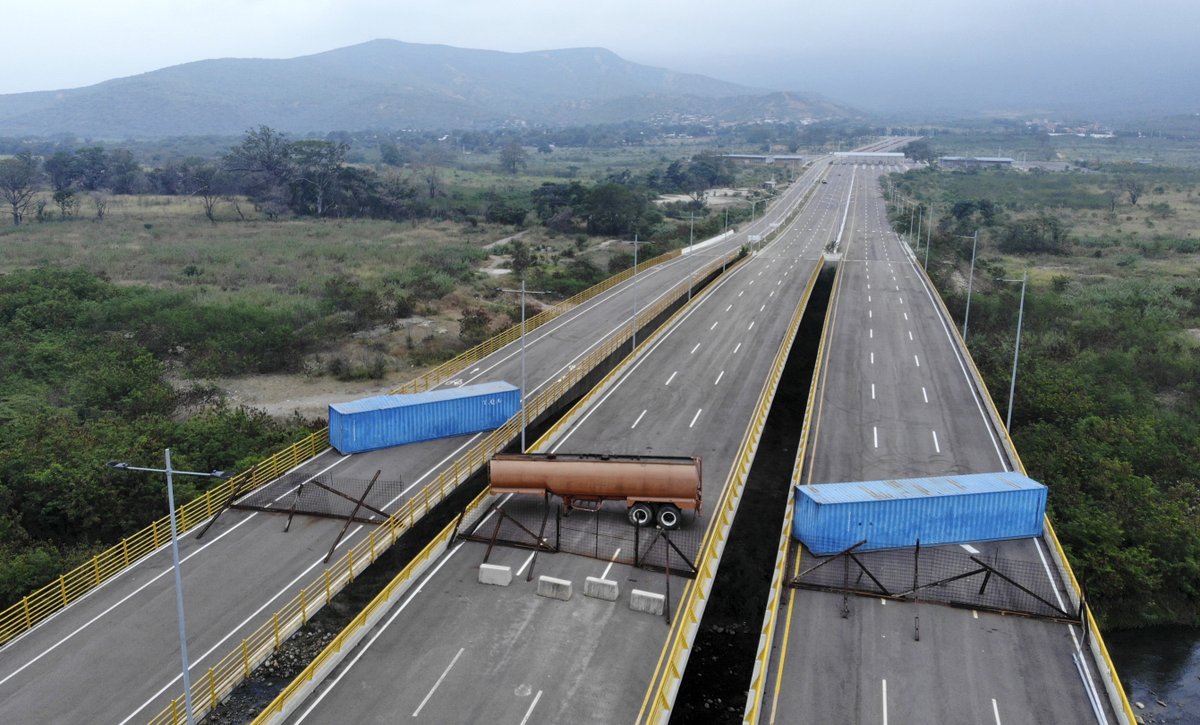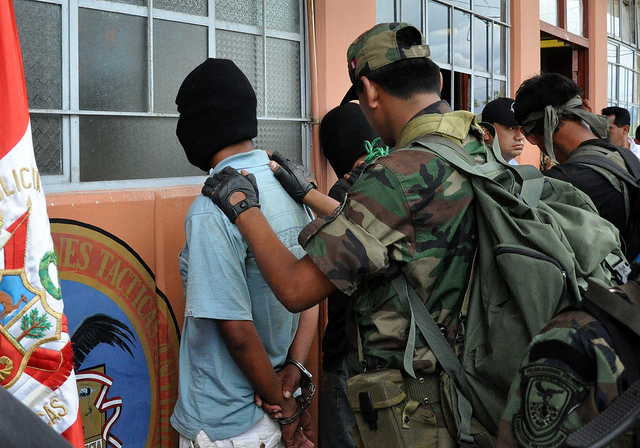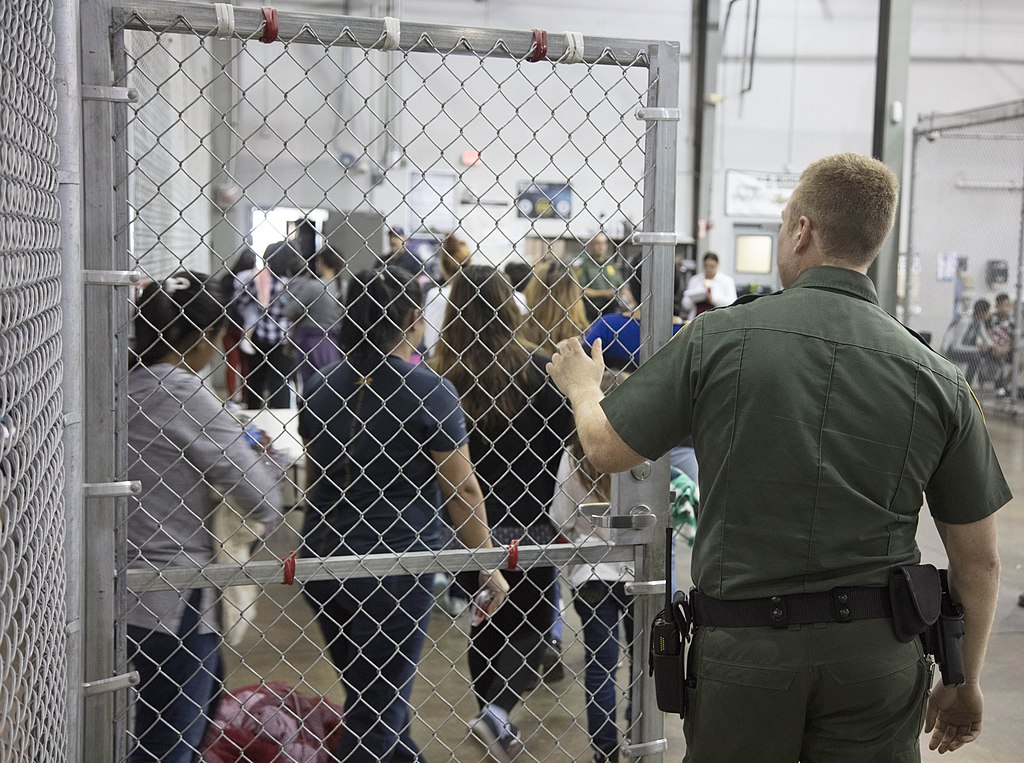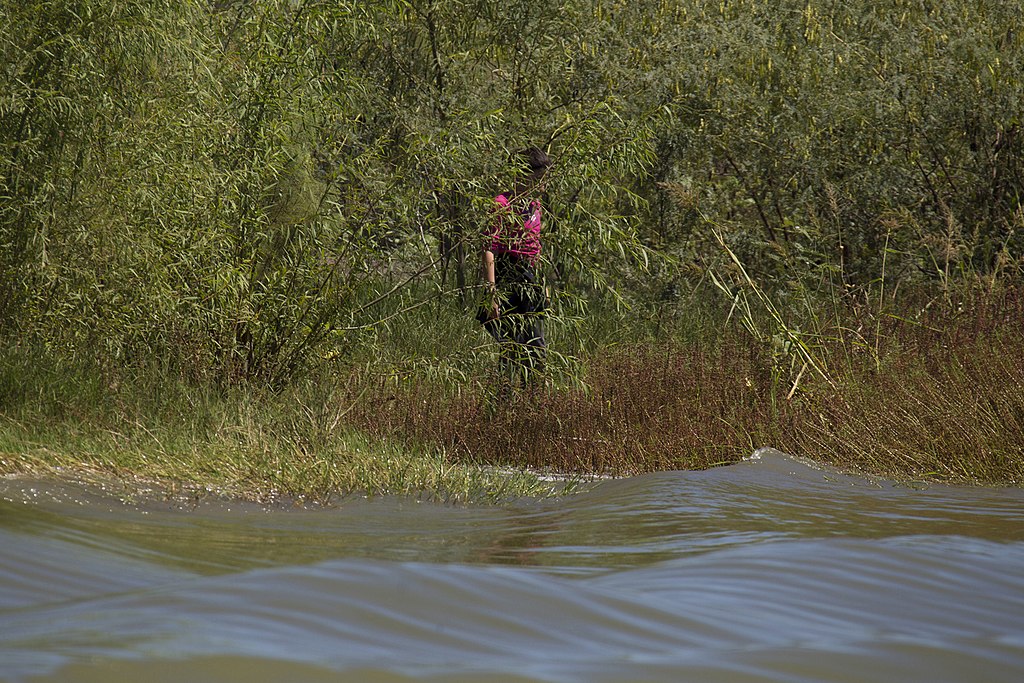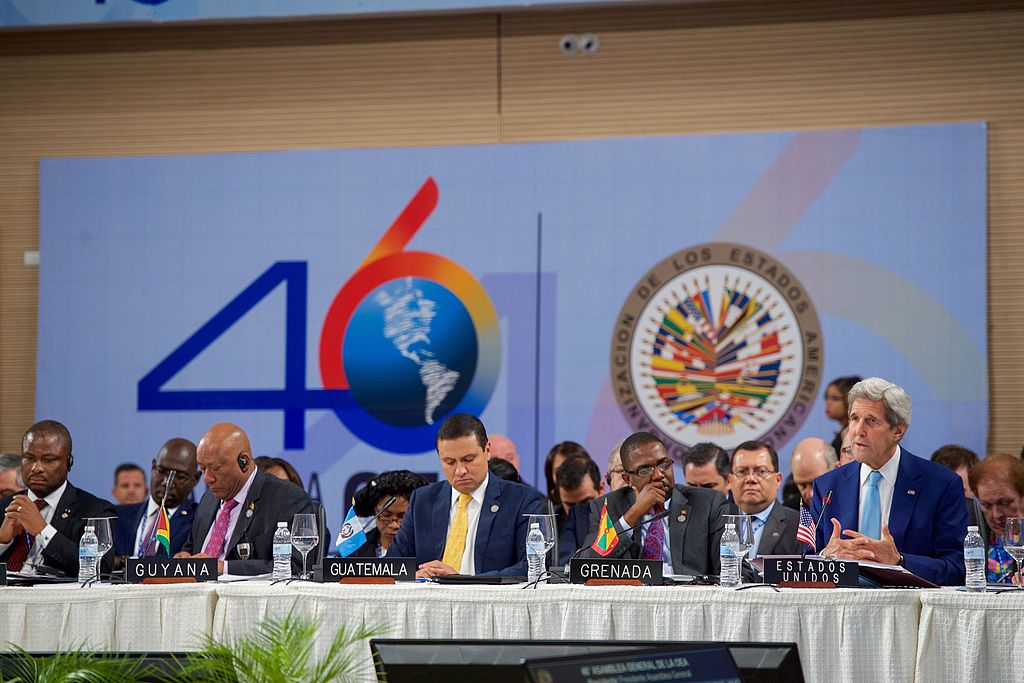
Latin America: Week in Review
OAS Convenes In Colombia With Venezuela As Top Hemispheric Issue
June 26, 2019 By Staff
TODAY IN LATIN AMERICA
COLOMBIA: Today, national delegations from 35 countries will congregate in Medellín for the 49th annual General Assembly of the Organization of American States (OAS) for a multilateral dialogue on migration, corruption, and regional integration. OAS Secretary General Luis Almagro said that Venezuela will dominate the conversations as it is the “most urgent” in the hemisphere since there is “no rule of law” in the country. The hemispheric organization is expected to deliver a “regional approach” to resolve the mass migration from the embattled country, as estimates say that 6 million Venezuelans would have left by 2021. The General Assembly concludes on Friday.
Headlines from the western hemisphere
NORTH AMERICA
UNITED STATES: The House of Representatives approved an emergency funding bill for humanitarian aid aimed at alleviating conditions at detention facilities at the border. Approved along party lines with at 230-195 vote, the $4.5 billion package ensures food and medical attention for minors, as well as setting sanitary standards at the detention centers. The White House has threatened to veto the bill as the Senate is expected to take up on it today.
BORDER: High-ranking border official resigned yesterday amid uproar over treatment of migrant children in detention centers. Acting Commissioner of U.S. Customs and Border Protection (CBP) John Sanders will step down in early July, as controversy regarding approaches towards border policy continues to grow. Mark Morgan, acting Director of Immigration and Customs Enforcement (ICE), will assume Sanders’ position. According to the New York Times, Morgan is known for having pushed raids to deport undocumented migrants.
CENTRAL AMERICA
GUATEMALA: After several delays, the electoral court (TSE) is set to begin its “vote-by-vote” recount today. The TSE is blaming a computer error in the mismatched vote tallies on their website, while other candidates are decrying that the elections were a fraud. Contributing as an observer during the June 16, the OAS has rejected fraud allegations, saying that the recount “will not change the will of the people.”
CARIBBEAN
CUBA: Renovations have made significant progress in Cuba’s oldest Jewish cemetery. The state-sponsored spruce-up has made strides ahead of the 500th anniversary of the Jewish Cemetery of Guanabacoa, to be celebrated in Nov. this year. Around 1,500 tombs are estimated to be in the graveyard located in the east side of Havana, some of which date back to the colonial era. Many Jewish families left the island after the 1959 revolution. Today, Israel and Cuba do not have diplomatic relations.
HAITI: The U.N. Security Council voted yesterday to continue its operations on the island in a different capacity, replacing its fifteen-year-old peacekeeping operation with a “political” mission. The U.S.-sponsored resolution, which passed unanimously, says that the new mission will advise the Haitian government in “good governance” and will promote an inclusive dialogue that “promotes human rights.” The lack of any climate change mitigation initiatives for Haiti prompted some disappointment among members of the Council.
PUERTO RICO: Governor Ricardo Rosselló asked for the immediate resignation of Treasury Secretary Raúl Maldonado on Monday, after Maldonado admitted during a radio interview that the FBI had launched a corruption probe into the Puerto Rican treasury. Yesterday, Maldonado’s son, Raúl Maldonado Nieve, excoriated Rosselló via Facebook, prompting the governor to question the “mental state” of the treasurer’s son. Puerto Rican prosecutors have asked recently-fired Maldonado to testify about the remarks made during the radio interview, where he alleged that an “institutional mafia” existed in the treasury.
ANDES
VENEZUELA: The chief of the Venezuelan secret police fled to the United States on Monday. General Cristopher Figuera, who directed intelligence agency SEBIN, told the Washington Post that President Nicolás Maduro is the “head of a criminal enterprise,” alluding to the degree to which corruption has become embedded in Venezuela’s political system. Maduro has accused Gen. Figuera of “plotting to oust” his administration after he collaborated with opposition leader Juan Guaidó in his failed uprising in April. The United States is “hopeful” the Figuera’s move will “animate” other Venezuelan military officers to defect.
SOUTHERN CONE
URUGUAY: Following the escape of an Italian druglord on Monday, the director of Uruguay’s penitentiary system resigned yesterday. Alberto Gadea, who served as interim director of the country’s prisons since Nov. 2018, stepped down following the improbable escape. Known as Milan’s “cocaine king”, the hunt for Rocco Morabito has generated international attention, including that of Italian Prime Minister Matteo Salvini, who demanded an “immediate explanation” from the Uruguayan government and a collaborative search for the fugitive.
BRAZIL: Yesterday, the Supreme Court rejected an appeal to free former president Luiz Inácio Lula da Silva from prison after leaked messages allegedly show a campaign determined to stop his candidacy’s success. Additionally, judges from Brazil’s top court voted 3-2 in favor of postponing a debate regarding then-judge Sérgio Moro’s impartiality during the trial and conviction against da Silva in 2017. The former leader of the Partido dos Trabalhadores (PT) will remain in prison until the Supreme Court resumes the case on August.
